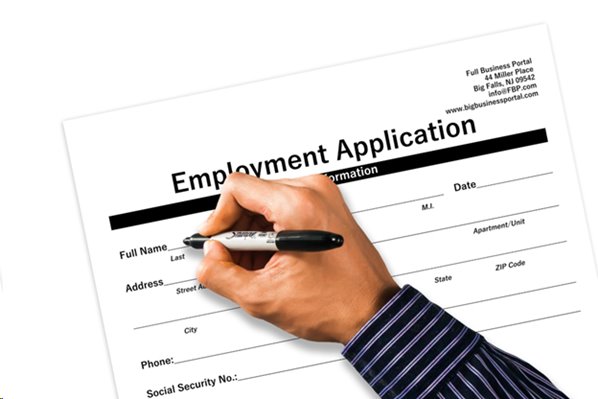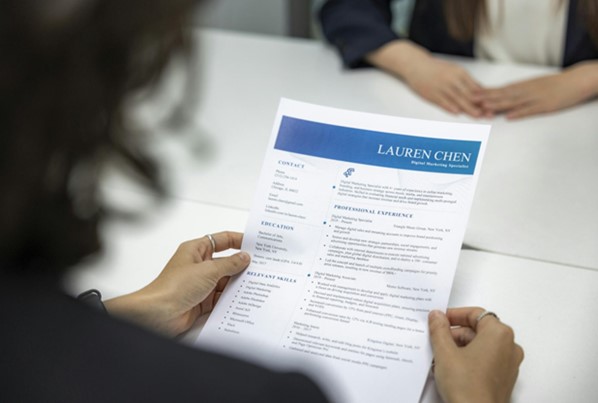
Navigating the realm of job applications can be both exhilarating and daunting. As the gateway to new career opportunities, mastering the art of applying effectively is essential. In today’s competitive job market, understanding the crucial facts about the application process can provide a significant edge. Whether you’re a recent graduate stepping into the professional world for the first time or an experienced worker looking to make a career change, the insights and strategies outlined in this guide will help you stand out among the applicants.
The Importance of a Strong Resume
A strong resume is your first impression of a potential employer, making it vital to your job application. It should showcase your skills, experiences, and achievements concisely and organized. Tailoring your resume to the job description can increase your chances of catching hiring managers’ attention. Highlighting relevant accomplishments and quantifying successes with specific metrics add value.
Equally important is the format and design of your resume. A clean, professional layout with clear sections allows employers to find information quickly. Using bullet points for accomplishments under each role makes content digestible and ensures vital information isn’t missed. Including keywords from the job listing can help your resume pass applicant tracking systems. A well-crafted resume is essential in the job application process.
Following Up Can Make a Difference
Following up on a job application can greatly impact your chances of being considered. This shows genuine interest and keeps your application in the hiring manager’s mind. Knowing how to follow up on a job application effectively involves timing and tact. It’s usually best to wait a week or two after the application deadline before reaching out, giving employers time to review applications. When following up, express enthusiasm for the position and politely ask for updates on your application status.
Follow-up emails can clarify misunderstandings and reinforce key points in your application. A well-crafted message lets you reiterate your qualifications and remind the employer of your suitability for the role. Maintain a professional and courteous tone in your follow-up, be direct yet concise, and include your contact information for further dialogue. By showing persistence without being intrusive, you can enhance your candidacy and leave a positive impression on employers.

Networking Can be a Key
Networking is a powerful tool in the job application process, connecting applicants with opportunities. It involves building relationships with industry professionals, leading to job leads, recommendations, and insights into a company’s culture. Platforms like LinkedIn and attending industry conferences or local events can expand your professional circle. These connections offer inside information about job openings before they’re advertised and advice on enhancing your application for specific employers.
Besides industry events, reaching out to alumni networks can be beneficial. Connecting with graduates from your institution who are now established in your field can lead to mentorship and job referrals. When networking, approach professionals with genuine interest and authenticity rather than seeing these interactions as purely transactional. By building meaningful relationships, you create a support system that helps in your job search and contributes to your professional growth over time.
Tailoring Your Cover Letter is Key
While your resume offers a snapshot of your qualifications, the cover letter lets you personalize your application and present yourself as a unique candidate. It’s an opportunity to expand on your relevant experiences and skills, demonstrating how they align with the job requirements. Tailoring each cover letter to the specific role and company can significantly increase your chances of standing out among other applicants.
Highlighting key accomplishments and transferable skills while including company research in your cover letter shows genuine interest. This effort distinguishes you from candidates who use generic templates or overlook the company’s values and goals. A well-crafted, targeted cover letter can leave a lasting impression and demonstrate your enthusiasm for the position.
Honesty is Always the Best Policy
In today’s competitive job market, it may be tempting to embellish or exaggerate your skills and experiences to stand out. However, this approach often backfires, as employers value honesty and integrity above all else. Background checks and reference calls are standard practice, so any dishonesty can quickly be uncovered, damaging your credibility and potentially disqualifying you from the application process.
Instead of focusing on perceived weaknesses or gaps in your resume, emphasize your strengths and explain how they align with the job requirements. Be genuine about your accomplishments, providing concrete examples when possible. This approach demonstrates your honesty and shows you have the necessary skills and experiences to excel in the role.
Researching Company Culture is Essential
Researching a company’s culture before applying for a job can greatly impact your overall job satisfaction. Understanding a company’s values, work environment, and employee benefits can help determine if it’s the right fit. Company websites, social media accounts, and online reviews are excellent resources for learning about a company’s culture.
Ask questions about the company culture during the interview to gain more insight. This shows your interest and allows you to make an informed decision if an offer is extended. Remember that finding a job isn’t just about meeting qualifications; it’s also about finding the right cultural fit. Doing your research beforehand can increase your chances of finding a job that aligns with your values and work style.
It is Crucial to Prepare for Interviews
Thorough preparation is essential after submitting a strong application and making it to the interview stage. This step involves researching common interview questions and crafting thoughtful responses that showcase qualifications and experiences. Preparing anecdotes and examples from previous work or academic settings can also provide evidence of your skills and ability to handle potential challenges in the role.
Additionally, practicing with friends or family members can help you refine your delivery and identify areas for improvement. It’s also crucial to research the company thoroughly and the individuals who will be conducting the interview. This information allows you to tailor your responses to align with the company’s values and demonstrate interest in their specific goals and initiatives.
The job application process requires careful planning, strategic preparation, and understanding oneself and the prospective employer. Approaching this with dedication can increase the chances of success. By being authentic and aligning personal values with the organization, job seekers can stand out in a competitive market and find fulfilling roles. As individuals pursue new opportunities, their preparedness and adaptability are crucial in navigating the evolving career landscape.




